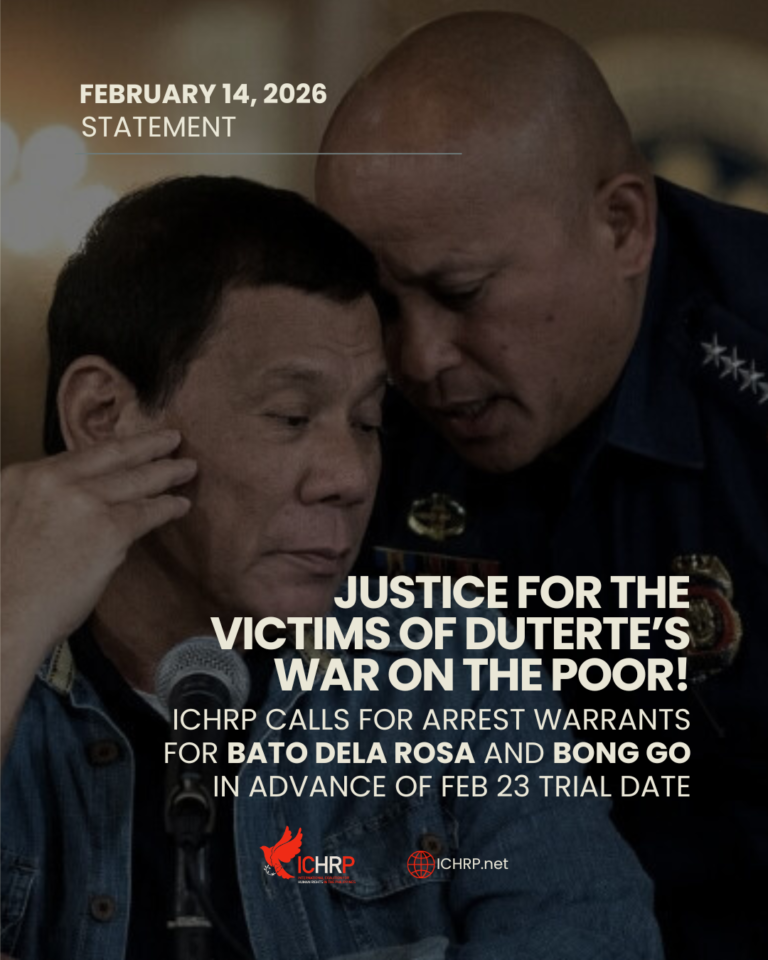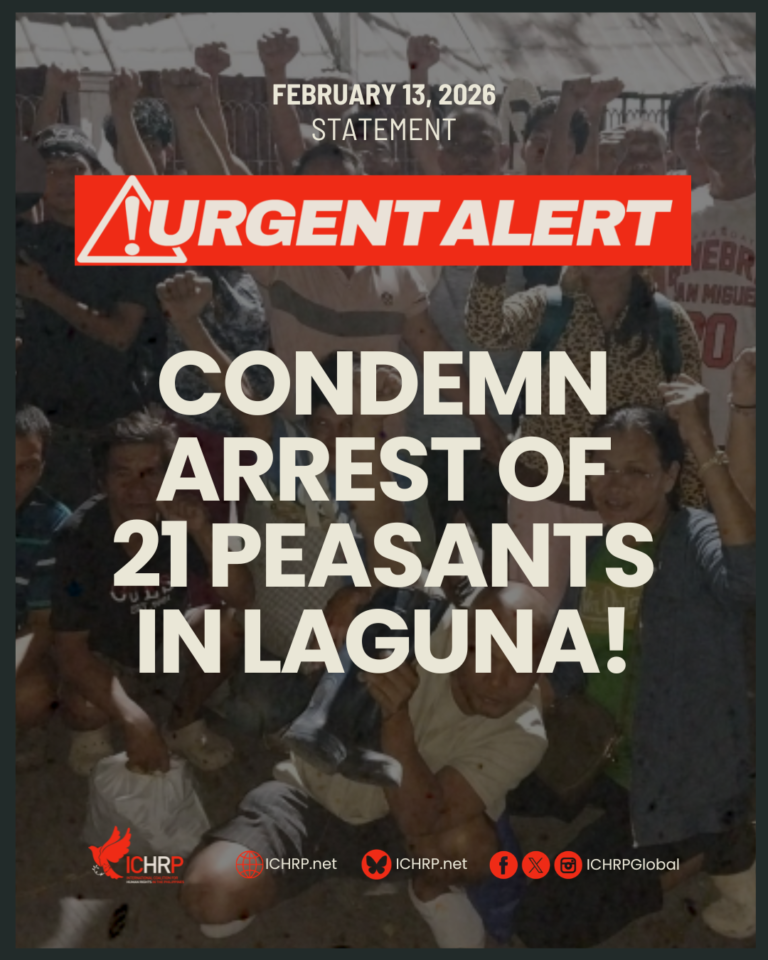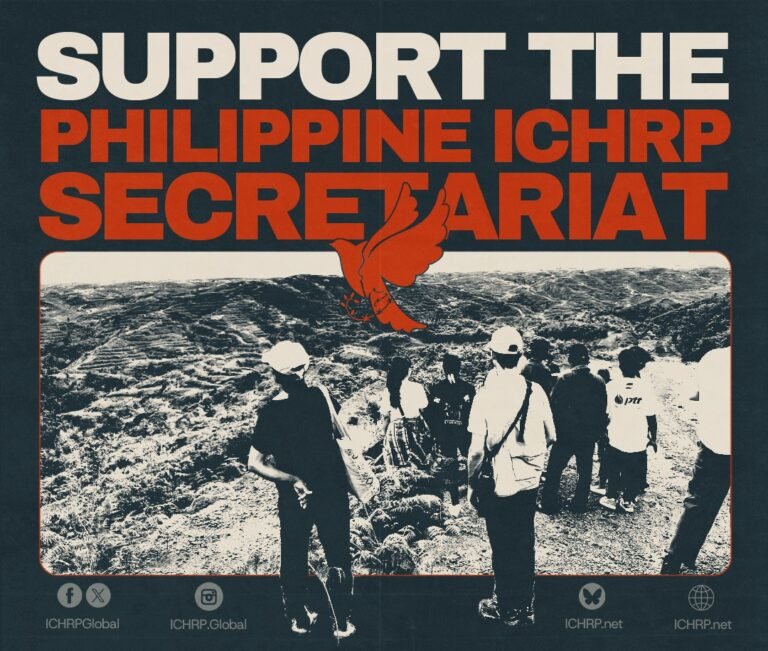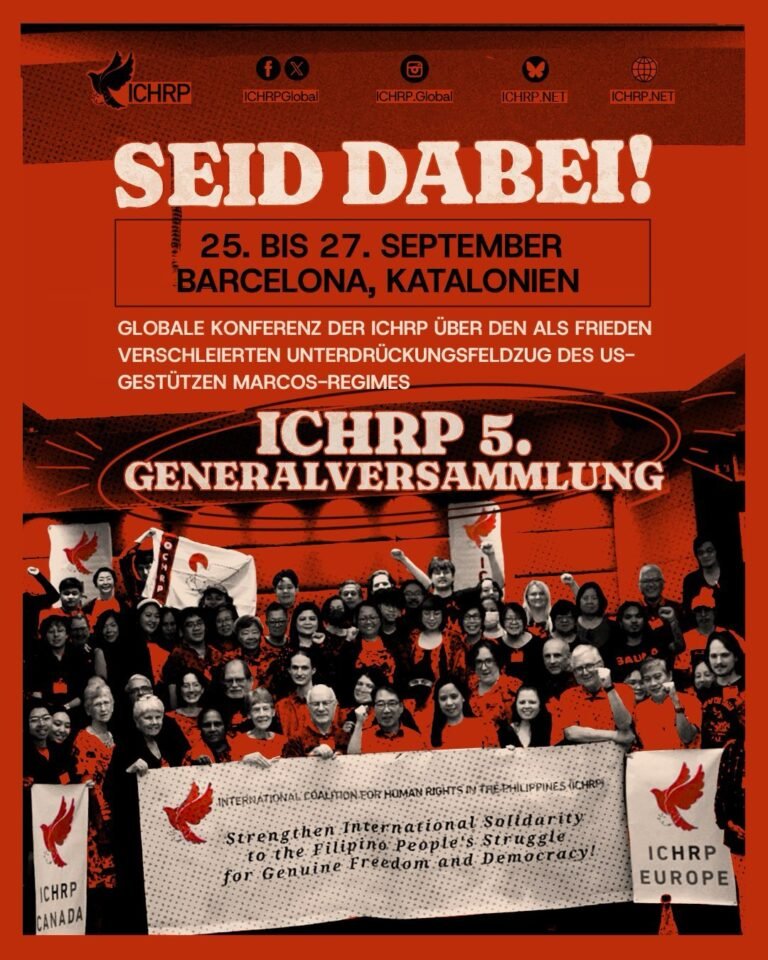Press Statement
February 14, 2026
“The many victims of disgraced former Philippine President Rodrigo Duterte will at last see progress with the confirmation of charges hearing on February 23, and we urge the International Criminal Court (ICC) to ensure that justice is seen to be done,” said Peter Murphy, spokesperson for the International Coalition for Human Rights in the Philippines (ICHRP) today.
“We welcome the January 26 decision by the ICC Pre-Trial Chamber I which rejected all the claims by Duterte’s defence that he is unfit for trial, should be released from detention, that the trial should be adjourned, and that the trial process so far has been unfair,” said Murphy. “This is the result of a huge effort by the victims, by their advocacy campaign Rise Up for Life and for Rights, and their legal team.”
Duterte is facing the charge of the crime against humanity of murder, committed on the territory of the Republic of the Philippines between November 1, 2011, and March 16, 2019, in the context of the ‘war on drugs’ campaign. If the charges are confirmed by a broad consideration of the evidence during the February 23-27 hearing, a date will be set for the full trial.
ICHRP had supported the call of the victims’ families and of many eminent jurists and human rights advocates that any manoeuvres aimed at absolving Duterte or securing his interim release be quashed. Now Duterte must remain in detention and face justice in the ICC.
ICHRP applauds the progress of the ICC charges against Duterte, but given the massive corruption scandal that emerged from August 2025, and the repression of protests about this, we call on the international community to act on the knowledge that the Marcos Jr administration should also be held to account. “Marcos Jr is throwing close associates under the bus to try to evade justice and thus save himself,” said Murphy. “He is also relying on the US Trump administration to save him as an ally in a looming war with China.”
Issue warrants for arrest of Bato, Go and others as co-perpetrators
In July 2025, the ICC Office of the Prosecutor submitted their Document Containing Charges to the Pre-Trial Chamber I and in it the Office also identified Senators Ronald “Bato” Dela Rosa, Christopher Lawrence “Bong” Go, and other persons are Duterte’s alleged co-perpetrators in the alleged commission of crimes against humanity in connection with the drug war. These extra names were redacted until February 13, 2026.
“ICHRP calls for the ICC to urgently issue arrest warrants for Dela Rosa, Go and the others named so that they can also face trial, along with their boss Duterte,” said Murphy. “It remains abundantly clear that the Philippine judicial system is unable to prosecute these alleged co-perpetrators. While still at large they are a risk for destruction of evidence, intimidation of witnesses and also flight risks.”
Ronald ‘Bato’ Dela Rosa during Duterte’s time as mayor of Davao City was Chief of Davao City Police (January 2012-October 2013) and during Duterte’s Presidential period was Chief of the Philippine National Police (PNP) (July 2016-April 2018).
Christopher Lawrence ‘Bong’ Go was Duterte’s Personal Aide and Special Assistant (1998-2016), and Duterte’s Special Assistant and Chief of the Presidential Managerial Staff (June 2016-October 2018).
The others named are Vicente Danao, Camilo Cascolan, Oscar Albayalde, Dante Gierran, Isidro Lapeña, and Vitaliano Aguirre II. All but one of these moved from Duterte’s Davao team to the national level from 2016.
The document also referred to “other members of the PNP and high-ranking government officials.”
500 more victims recognized by ICC
In a second decision about victims, published on February 13, the Pre-Trial Chamber I also authorized 500 additional applicants to participate as victims, bringing the total number of victims participating at the confirmation of charges stage to 539 victims.








